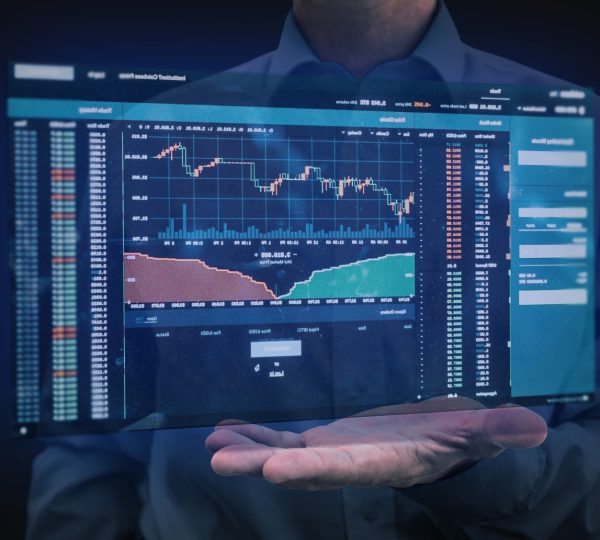Every physical task can be replicated in the evolving digital universe known as the “Metaverse,” which employs technologies such as Virtual Reality (VR) and Augmented Reality (AR). In this situation, a natural person appears as a uniquely designed digital avatar.
Everyone is entitled to do as they choose in the modern digital world, and businesses may profit from this period of unprecedented opportunity.
According to Statista, the market value of metaverse technology will reach around $2.5 billion by 2030, sure to get the attention of investors hoping to benefit from the industry’s explosive expansion. Second, numerous well-known IT companies are investing in this sector, including Microsoft and Facebook (which recently changed its name to Meta).

Business in the Metaverse
The Metaverse is an all-encompassing idea, but the industry that grows around it will be more interested in various related subtopics. That is why , in October of last year, Facebook, the world’s most well-known social networking site, adopted the name Meta.
Hardware, content, platform development, and data security are just a few of the investment potential in the Metaverse. Although widespread acceptance of the Metaverse may take time, enormous sums of money have already been invested.
The commercial Metaverse is only now beginning to take off. It would not be remarkable if businesses in this industry someday produced multi-bagger returns, similar to the current internet goliaths. Who will bring in those profits is the critical question.
The most well-known businesses aggressively expanding their presence in the metaverse economy include those listed below.
Roblox
Roblox, which provides an interactive play platform, has been valued at $23 billion. The corporation used the term “metaverse” in its prospectus before Meta did. By utilizing Roblox’s features, designers can create interactive stuff for their friends and other users to enjoy. Users can customize their experiences, making them more individualized and dynamic. Do you remember the Roblox-hosted David Guetta DJ Avatar concert in January 2019?
Roblox claims that by the end of 2021, it will have gathered 29 million experiences and 45.5 million DAUs. It would be incorrect to believe that only children and teenagers like Roblox. Over a third of its users are over the age of 18.
Roblox has a variety of revenue streams. Their revenue is derived mainly from Robux transactions, including advertising, licensing, and royalties. The virtual currency, Robux, can be used in the game’s Marketplace to purchase accessories for your personalized character. Robux is only available on Roblox and can be purchased for a set sum set by the business.
The current wave of innovation in the Metaverse seems rooted in Roblox. But the state of its finances appears like it could be more encouraging. Despite doubling the company’s revenues in 2021, losses have increased yearly.
As a result, investors have shunned growth firms in favor of the company’s promising future, causing the price of RBLX stock to fall by more than 70% since last November.
Meta
Facebook (now Meta) is commanding in this emerging sector thanks to its enormous user base, outstanding innovation capabilities, and considerable financial resources. The company has expressed that it wants to establish a setting focused on the Metaverse. It released the online virtual reality video game Horizon Worlds last year. By introducing Oculus headsets to the hardware market, Meta can expand on its current platform offers.
Mark Zuckerberg, the CEO of Meta, considers augmented reality (AR) glasses to be “one of the hardest technical challenges of the decade.”
According to Credit Suisse, the global AR/VR headsets market will generate $12.6 billion in sales in 2025[1], a 36% CAGR from 2020 to 2025. Metaverse is likely to have an even more significant impact on the VR headset market than the internet did on the smartphone sector ten years ago. After recognizing the enormous commercial potential, Facebook purchased Oculus VR for $2 billion in 2014.
Additionally, Meta is creating Horizon Workrooms, where you may collaborate online. Users can communicate in real-time using a hybrid of virtual and augmented reality. The epidemic altered how we conduct business. That hastened this subfield’s advancements and raised support for working in the Metaverse.
The fact that Meta invests heavily in the Metaverse is now widely known. $10 billion was spent last year[2] by The Reality Labs, Meta’s R&D division tasked with developing the technology and platforms for the Metaverse. Its quarterly profits were significantly impacted by the high cash burn last year, which caused a sharp decline in the stock price. That does show the company’s dedication to its long-term objective in the Metaverse, though.
Additionally, Meta is not the only tech behemoth investing billions of dollars. To aquire a piece of this lucrative industry, rival IT giants Apple, Microsoft, and Google are also stepping up.
The stock of Meta Platforms faltered in 2022, much like many other high-growth tech businesses. After plummeting 47% this year, it is trading at its lowest point in two years.
Time will tell how the dominant social media platform seizes this lucrative opportunity. Meta’s aspirations could be reachable if they spent extensively over several years. However, as was already indicated, Meta enjoys a huge edge due to its long history of invention and substantial financial capabilities.
Microsoft
Microsoft Meta isn’t the only business making a bet on the future of the internet. Large technological company Microsoft is also significantly investing in the virtual world. It announced its plans in January this year when it said it would buy gaming giant Activision Blizzard.
The company has announced that the firm that created well-known video games like “World of Warcraft” and “Candy Crush” will be purchased by Microsoft for an astounding $69 billion. Microsoft hopes to benefit from the purchase with increased scale and new opportunities for gaming metaverse development.
Another ground-breaking innovation that helps virtual teamwork seem more real is Microsoft Mesh. The user’s 3D avatar can be created using digital and physical data. Although Microsoft Teams proved helpful during the pandemic, Mesh will fundamentally alter how things are done. Now that our avatars can act as emojis, those drawn-out video office meetings are more engaging and fun.
With HoloLens, Microsoft is advancing not only into the Metaverse’s gaming and business meeting subthemes but also into the third and most crucial subtheme. These augmented reality glasses, first introduced in 2016, are the first generation. Businesses, the military, and doctors already use the HoloLens 2. The bulky AR eyewear is believed to be far less comfortable to wear.
Like Meta, Microsoft has a solid financial foundation and can set aside extra funds for ambitious projects like the Metaverse. Its cash and equivalents were $105 billion as of the third quarter 2022. Therefore, additional money will make it possible to invest more in R&D and, as a result, increase CAPEX for expansion projects.
Microsoft’s assertiveness in several subthemes is encouraging for the company’s prospects of expanding its share of the metaverse industry.
The new world of the Metaverse has every excitement of the real world. Many once-hesitant investors have recently altered their minds and are willing to invest in this innovative technology. Investing in cryptocurrencies is similar to how you all now invest, with an online exchange account and a wallet to hold your assets.
Second, some options have a strong potential for accelerated growth, including NFTs, large firms like Nvidia, Microsoft, and others, and the coins used in metaverse games. Investing in these areas makes complete sense because they will continue to grow.



